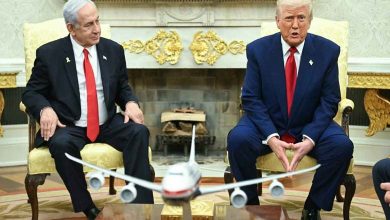The Future of Al-Qaeda-Houthis Relations After Batarfi’s Killing: Expert Answers

The killing of Khalid Batarfi, the leader of Al-Qaeda in the Arabian Peninsula, known as Abu al-Maqdad al-Kanadi, raises several questions about the future of relations between Al-Qaeda in Yemen and the Houthi group. There is speculation whether Al-Qaeda will continue supporting the Houthis, especially since Batarfi played a significant role in their backing, following their declaration of support for what is known as the “Palestinian resistance” and their attempt to present themselves in a heroic light to encourage all jihadist groups to coordinate and cooperate with them.
In this context, journalist specialized in terrorism affairs, Hisham El Najjar, affirmed to “Al-Hal Net” website that: “The situation of Al-Qaeda in Yemen is very complex because it is intended to be within other armed Sunni groups in more than one region as a tool for the Iranian expansionist project and in service of the Iranian agenda, by being sponsored and directly supervised by the central Al-Qaeda organization and its leaders residing in Tehran, and this inevitably leads to strengthening ties with the Houthis, whose conflict with the US and Britain has reached an unprecedented level”.
He added: “Accordingly, the new leadership of Al-Qaeda in Yemen faces a real dilemma, because if the current situation persists regarding the relationship with the Houthi group, it is likely that the organization will be targeted by international forces with greater force than before”.
He continued: “The reality is that the Houthis are in a desperate situation for attacking maritime navigation in the Red Sea, and they seek to involve all sects in this conflict, especially as they face international forces that may not be able to withstand them, while trying to reduce the number of their enemies and not to antagonize everyone, these groups demand the unification of their efforts against their ‘primary enemy’, namely the US and Israel”.
Tareq Abu al-Saad also confirmed that “the relationship between Al-Qaeda and the Houthis has been somewhat disturbed by Al-Qaeda leaders, including al-Awlaki, the second man, who was appointed as leader of the organization after the announcement of Khalid Batarfi’s death. The reason for the disturbance is that the Houthis, by entering the battle in Gaza and closing the Bab el-Mandeb strait to international navigation, have brought Yemen back onto the scene and reminded of their jihadist capability, which pushes America to direct strikes not only against the Houthis, but also against their leaders”.
Abu al-Saad added that “the disarray within Al-Qaeda has more than one reason; firstly, the exclusion of some leaders from Hadhramaut, including Batarfi himself; secondly, Batarfi’s insistence on a total alliance and the expansion of Houthi influence, in a clear and non-secret manner, exposing the ideological pillar among the followers to instability. Therefore, Batarfi’s departure from the scene was a collective demand, even for the Houthis who would lose Al-Qaeda as an ally if discontent persisted and evolved into rebellion, because a cohesive Al-Qaeda, even if it is a second-tier ally with less availability, is much better than a strong and disunited allied Al-Qaeda“.
The situation in Yemen is complicated, as there are several forces on the ground, including the Houthis who represent the main force, the Muslim Brotherhood who are the Congregation for Reform and Development party controlling the Oil Triangle, and the southern transitional forces controlling southern Yemen. This creates major contradictions on the ground, and relations between them are governed by alliances against common enemies.












